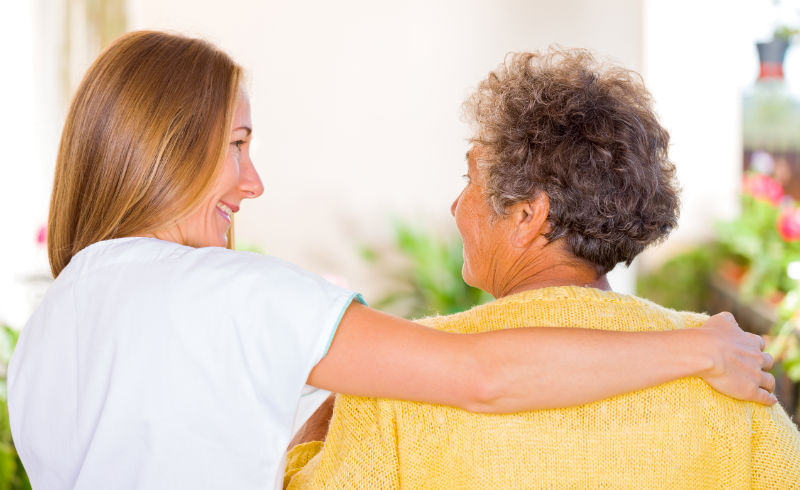For Caregivers
Support systems are an integral part of a person’s cancer journey. As a matter of fact, many would argue they are the most important part. Here are some tips on how to simply lend a hand to a friend or loved one, or assume the role of caregiver.
Cancer Caregiver Tips 101
Be proactive. Don’t wait for someone to call you or ask you to do something before you consider lending a hand. Often times, patients have so much on their mind that reaching out to ask for help simply becomes a task—another thing ‘to do’ on their ever-growing list of chores. Most people, in general, have a hard time asking for help because we don’t want to be a burden or put pressure on others; for this reason alone, a cancer patient may never reach out on their own. Simple things, like offering to walk their dog, pick up groceries, or tidy their house, might alleviate more pressure than you know.
Stay involved and up-to-date with their ongoing, professional medical care. Assuming the role of a caregiver is not an easy feat. It can often be time-consuming, exhausting and an ongoing learning process. A lot of commitment is required, and many responsibilities will fall on your shoulders. Remember, if at any point in time questions arise, you’re never alone; you can and should contact their physician to inquire about issues as they come up, especially when they directly concern medical care.
- Know and help assist with their required medical needs (i.e., nutrition, physical therapy, daily medications, etc.).
- Know and accept their limitations. Sometimes it’s hard to adjust to the fact that a person isn’t capable of doing all the things they once had on a daily basis. However, this is an unfortunate side affect of any disabling disease and shouldn’t be taken lightly. It is also important to understand that these limitations may fluctuate or grow with time.
Try to keep them involved in activities that they previously enjoyed, so long as it doesn’t compromise their health. In contrast to knowing and accepting one’s limitations, receiving a cancer diagnosis doesn’t mean all normal activities should cease to exist. They may be sick, but they’re still human and many people still enjoy participating in their favorite pastimes. It just may be that one thing that puts a smile a their face and keeps them connected to a certain sense of normalcy in such a chaotic time of their life.
Be a good listener. Communication is key, and this holds true for anyone and everyone. Many people don’t know what to say to someone who has cancer, or they’re afraid of saying the wrong thing. While reciprocal, open communication is very important—sometimes all a person needs is to be heard. This may seem like a common sense thing, but you’d be surprised how often this small act goes unrecognized or altogether overlooked. Both can benefit from this small gesture; it may prove very therapeutic for the patient, and the caregiver may pickup on other ways to help.
Ask for and accept help. A caregiver should never feel alone and should always have backup help. It’s more than okay to admit you’re not Superman or Superwoman—nobody expects you and you alone to embark on this important, heavy mission unassisted. It’s very important to inquire about and utilize the resources that are most times offered by the medical center treating the patient. Nurses and social workers hold a wealth of knowledge in this area and will be more than willing to help you. Social workers, specifically, can be of great help with any financial and insurance issues/questions that come up. All you have to do is ask.
Take care of yourself. It’s so easy to get consumed with helping someone else that you lose sight of your own needs, and before you know it, you’re completely burnt out. It’s very important that you get plenty of rest, eat well and take as much time as possible for yourself. After all, you won’t be much help to anyone else if you yourself can barely stand.

 Join our mailing list.
Join our mailing list.

